Inside Baseball: Winter Park’s Heavy Hitters Negotiate a Stadium and Spoils of the Game
Inside Baseball: Winter Park’s Heavy Hitters Negotiate a Stadium and Spoils of the Game
While Manatees, Rollins College & Developers Pursue Stadium-Related Revenues & Gov’t Subsidies, Citizens’ Group Petitions to Keep the Stadium Out of MLK Park
|
A little more than a year ago Rollins College and (presumably) other baseball principals invoked a Florida statute that kept Winter Parkers in the dark about stadium negotiations with the city. In February 2014, the news blackout expired. Winter Park Voice has filed numerous Freedom of Information document requests with the city asking to see baseball-related email and other documents. Last week, the city released documents and email to the Voice showing what appears to be a serious negotiation by baseball principals to secure funding for a stadium at Rollins’ Harper–Shepherd field located near Orange Avenue and Denning.
If Harper-Shepherd Negotiations Fail, MLK Park is a Favored Alternative. Citizen Petitioners Claim that Stadium in MLK Will Increase Traffic/Noise & Affect Quality of Life Recent public hearings and the city’s interest in Martin Luther King, Jr. Park as an alternative stadium location have motivated a group of citizens to mount a petition drive to keep the stadium out of the park. This citizen-led effort appears to have grown out of concerns voiced by citizens and neighborhood groups that new and proposed Denning-area development – including the prospect of an extension of Lee Road through to Denning Ave. – will choke northwest Winter Park with large buildings and traffic gridlock. As reported by the website HeartofWinterPark.com
City Manager Knight Responds to Voice Request for Clarification/Explanation of Stadium Negotiations
Mr. Knight also said that some of the information we gathered from city email (and questioned him about) was “outdated”, but did not offer any correction or update of the information. The full text of Mr. Knight’s response to Voice questions is shown at the end of this story. A key memo referenced by Mr. Knight is shown below. Will Rollins’ Harper-Shepherd Field Get the Nod? Documents provided by the city include a “Term Sheet” memo, submitted by the Manatees’ David Freeman on March 28 that spells out terms of a proposed deal “. . . under which City, Rollins, and Manatees will agree to jointly fund construction of a new baseball stadium to be owned by Rollins and a new parking garage to be owned by City, and under which Manatees will agree to relocate Florida State League professional baseball club to Winter Park in Spring 2016.” On April 1, City Manager Randy Knight added his comments to the “Term Sheet” memo modifying and correcting various aspects of the terms proposed by the principals. Among the original terms put forward by the principals was a request that the city build a parking garage on land next to Harper-Shepherd field owned by Rollins College.
The projected cost to build the stadium garage (to be paid mostly by the city) is $6 million, $2 million of which will be paid by the Manatees baseball organization. The principals indicate that Rollins will contribute Harper-Shepherd Field and adjoining land plus an additional $4.25 million for the stadium project. The city’s total contribution could go as high as $6.3 million, most of which would be taken from city CRA funds – if Orange County officials agree to extend the life span of the CRA (Community Redevelopment Agency). Baseball Principals Lean Heavily on Gov’t Programs Designed to Help Low-Income Communities
IRS guidelines describe the reason Congress set up the NMTC program as follows: “This Code section permits individual and corporate taxpayers to receive a credit against federal income taxes for making Qualified Equity Investments (QEIs) in qualified community development entities (CDEs). These investments are expected to result in the creation of jobs and material improvement in the lives of residents of low-income communities. Examples of expected projects include financing small businesses, improving community facilities such as daycare centers, and increasing home ownership opportunities . . .”
Is Stadium Use of Funds Intended for Westside Development an Appropriate Use of CRA Money? Commissioners who oppose use of city money to build the baseball stadium may find themselves in bind when a final stadium deal goes up for a vote. Those who espouse a “no city money” position may be forced to defend a deeply finessed definition of “city money.” We asked Randy Knight to explain the justification for possible use of CRA funds for the stadium project. We also requested a clarification as to whether CRA funds are fundamentally the same as any other city tax revenues – except that they are earmarked for community redevelopment. Mr. Knight did not respond to these questions.
History of the Deal: City Didn’t Like Manatees’ Original Offer – Wanted to Avoid Perception that The initial terms proposed by David Freeman in a March phone conversation with Randy Knight apparently did not include any upfront cash contribution by the Manatees. In a follow-up email to Freeman and others on March 17, Knight rejects Freeman’s offer saying “. . . I have given a lot of thought to the proposed deal David described to me on the phone last week and I do not believe I would be able to get the Commission’s vote to support it.”
Knight Outlines Objections to Team Owners’ Initial Offer:
Knight then offered a counter-proposal warning “I don’t want to drag this out until August if this [ Freeman’s ] proposed deal is the best we can do. I offer the below proposal that I believe I can in good conscience recommend to the City Commission.” Knight’s Counter-Proposal Paves Way for Current Deal Knight Adds Deal-Sweetener. Freeman Responds.
“If you recognize the $5 million purchase price of the team, your NMTC increases by $1.25 million……and the guy writing that check doesn’t feel as slighted by the skin-in-the-game analysis. It appears that the bottom-line is the addition of a $6M city-owned parking garage and the request for the team to contribute $2M of that $6M. Not an unreasonable request if the team can find additional sponsorship revenue to recover that outlay. Below [ city counter-offer ] does not address a solution for the annual lost revenue that the club suffers as a result of smaller, cheaper stadium. Again, maximizing sponsorship revenue appears to be the most realistic path to recovering this foregone revenue.” The Voice asked Randy Knight whether the city’s contribution of $1+ million “shortfall” money (additional to the $5 million CRA money) would come from the general fund – and, if not, where the city would find the money? Mr. Knight did not respond to the questions. Path to Gov’t $$$ for Stadium Leads Principals to Tallahassee and Washington D.C. Email exchanges among the principals over the past month indicate strong interest in tapping multiple government subsidies to secure the stadium deal. On April 2, team owner Tom Winters forwarded this news item to Mayor Bradley, Randy Knight and others:
Rollins Hopes Congressman John Mica Can Help Rollins Seal Stadium Deal
“President Duncan mentioned again yesterday that John Mica would still like to do something for the College but it needs to be “transportation” related. A parking garage is transportation related so we should approach John from a combined City and College perspective and see if he can get us the $6M for the parking garage . . .” The Voice asked Randy Knight whether principals are still pursuing the Mica “Transportation” funding option. Mr. Knight did not respond to the question.
Without Mica, Who Will Cover Stadium $$$ Shortfall? Rollins’ VP: “We can do that.” In the same 3/25 email, Eisenbarth concludes that Rollins can find the funds necessary to close the deal:
If Rollins’ Harper-Shepherd Deal Falls Apart, Other Developers Ready to Move Forward The Harper-Shepherd agreement, if ultimately approved, leaves developer Dan Bellows empty-handed – despite his two-year campaign to have the stadium built in Ravaudage. In Part 2 of this story, we will examine the long, colorful history of stadium negotiations between the city and other developers. Full Text of Knight Response to Winter Park Voice Shown below is the full text of City Manager Randy Knight responding to our questions asking for clarification, correction and updating of the information we found in city emails submitted to the Voice last week:
|


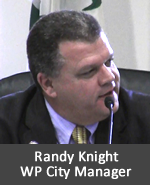 The Voice contacted City Manager Randy Knight last week asking for updated information, clarification of numerous points made in city emails and corrections (if any). Mr. Knight did not respond directly to any of our questions or provide any updates. He did, however, respond with a statement indicating that the ongoing negotiations are a “very complicated and fluid process” adding that he does not have “the authority to bind the city to any deal . . .” and that Jeff Eisenbarth of Rollins College “does not have the authority to bind Rollins to any deal.”
The Voice contacted City Manager Randy Knight last week asking for updated information, clarification of numerous points made in city emails and corrections (if any). Mr. Knight did not respond directly to any of our questions or provide any updates. He did, however, respond with a statement indicating that the ongoing negotiations are a “very complicated and fluid process” adding that he does not have “the authority to bind the city to any deal . . .” and that Jeff Eisenbarth of Rollins College “does not have the authority to bind Rollins to any deal.”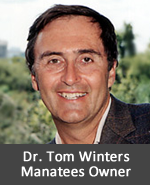 The proposed agreement counts on city CRA money and a $7.5 million federal tax break for the principals. The tax break comes from a program – the New Markets Tax Credit (NMTC) – set up by the federal government to encourage development in disadvantaged communities.
The proposed agreement counts on city CRA money and a $7.5 million federal tax break for the principals. The tax break comes from a program – the New Markets Tax Credit (NMTC) – set up by the federal government to encourage development in disadvantaged communities.
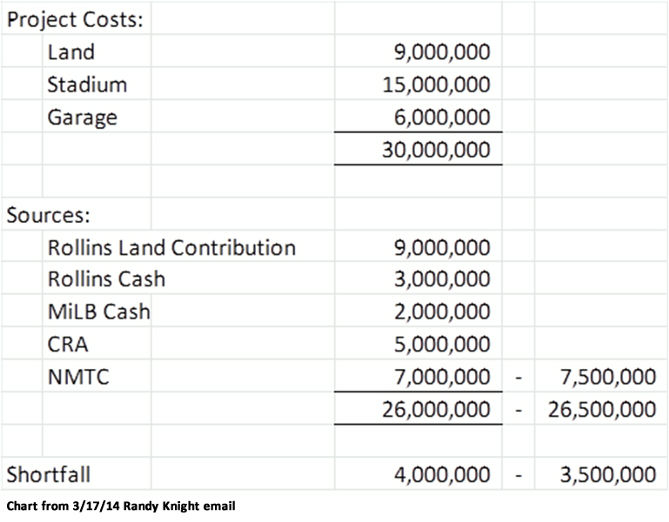
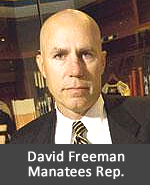 Knight sweetened his proposed terms with an offer to share a projected $3.5 – 4 million funding shortfall, saying he “could support recommending that the City put in 1/3rd of the shortfall (with conditions that the parking garage is available during non-game times for other use) if Rollins and the Team find the other 2/3rds either up front or through shared revenues. Otherwise, I think this site is off the table and we need to focus on one of the two sites with developer participation to make up the shortfall.” The next day, Freeman responded:
Knight sweetened his proposed terms with an offer to share a projected $3.5 – 4 million funding shortfall, saying he “could support recommending that the City put in 1/3rd of the shortfall (with conditions that the parking garage is available during non-game times for other use) if Rollins and the Team find the other 2/3rds either up front or through shared revenues. Otherwise, I think this site is off the table and we need to focus on one of the two sites with developer participation to make up the shortfall.” The next day, Freeman responded: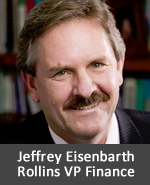 In a 3/25 email to the principals, Rollins’ VP for Business and Finance Jeffrey Eisenbarth notes that Rollins may be able to tap its Washington connections:
In a 3/25 email to the principals, Rollins’ VP for Business and Finance Jeffrey Eisenbarth notes that Rollins may be able to tap its Washington connections: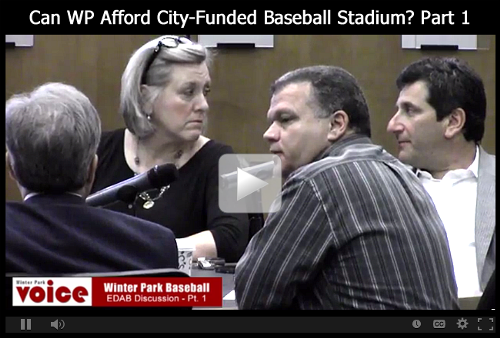
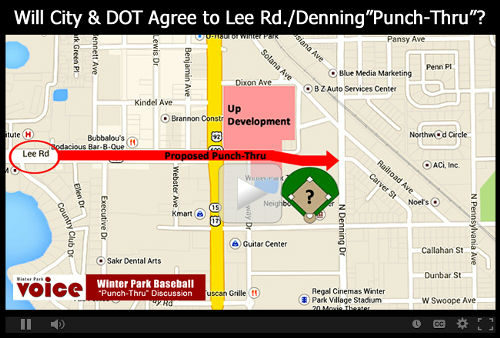
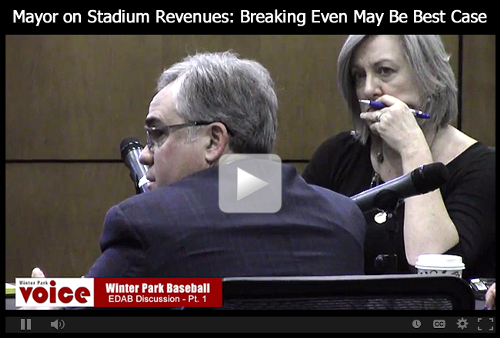
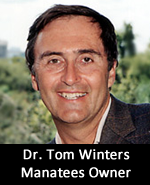 On February 12, Randy Knight responded to questions from the Winter Park Voice, explaining the City’s approach to UP Development and clarifying ownership of the Manatees – including Mr. Freeman’s possible involvement.
On February 12, Randy Knight responded to questions from the Winter Park Voice, explaining the City’s approach to UP Development and clarifying ownership of the Manatees – including Mr. Freeman’s possible involvement.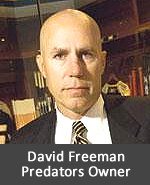 David Freeman and Scott Fish may have an opportunity to team up again if Winter Park chooses to build a stadium on the VoTech site next to Fish’s Up Development site. In recent years, Fish and investor David Freeman’s Predators worked together to keep the Franklin, Tennessee A-Game Sportsplex near Nashville afloat. Freeman also poured millions into the Predators hockey franchise. The Predators play at Bridgestone Arena in downtown Nashville, a few miles from the Grand Ole Opry.
David Freeman and Scott Fish may have an opportunity to team up again if Winter Park chooses to build a stadium on the VoTech site next to Fish’s Up Development site. In recent years, Fish and investor David Freeman’s Predators worked together to keep the Franklin, Tennessee A-Game Sportsplex near Nashville afloat. Freeman also poured millions into the Predators hockey franchise. The Predators play at Bridgestone Arena in downtown Nashville, a few miles from the Grand Ole Opry.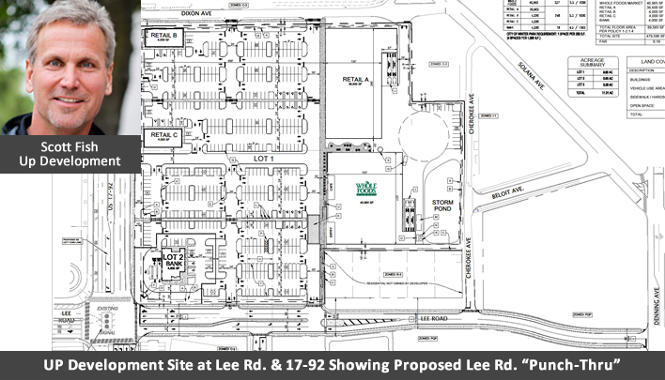
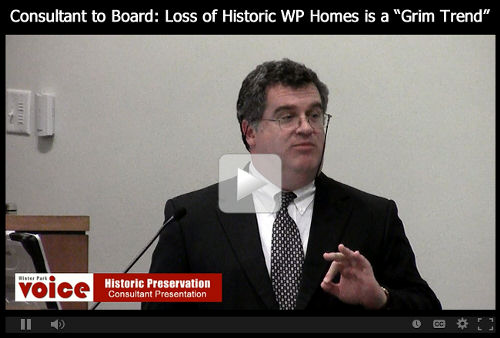
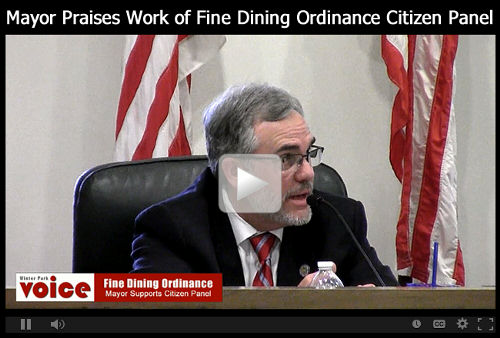
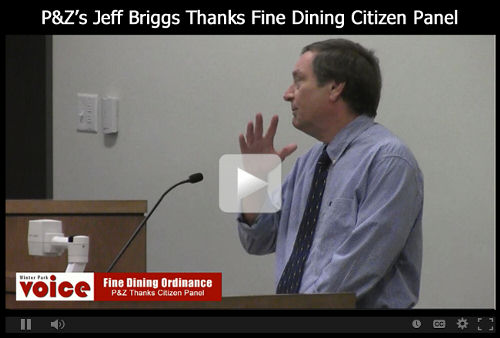
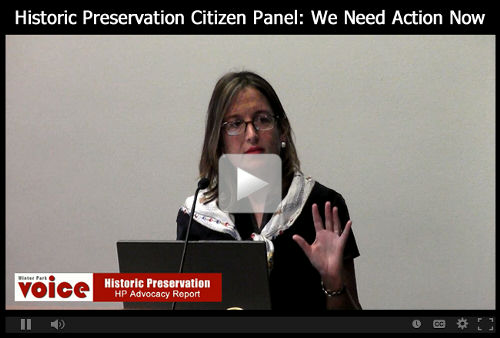
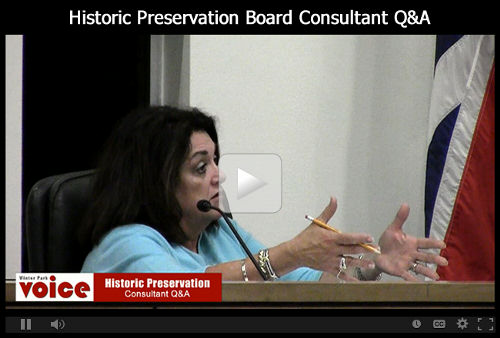
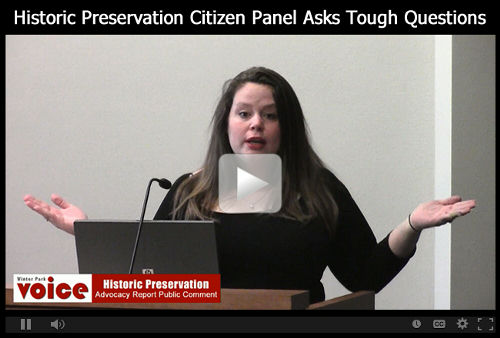
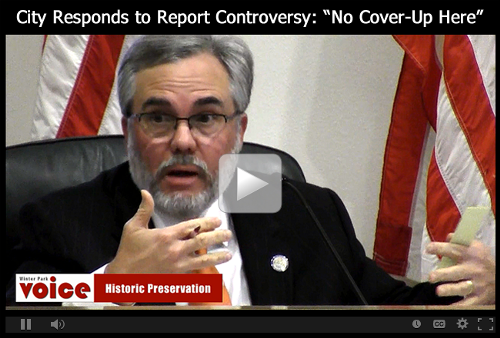
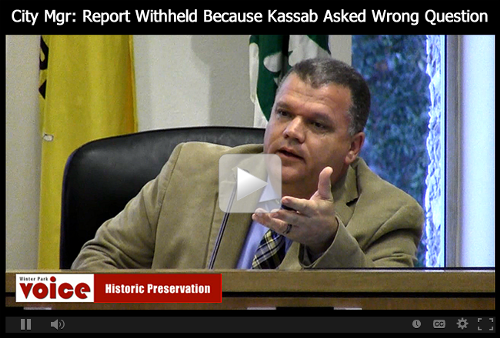
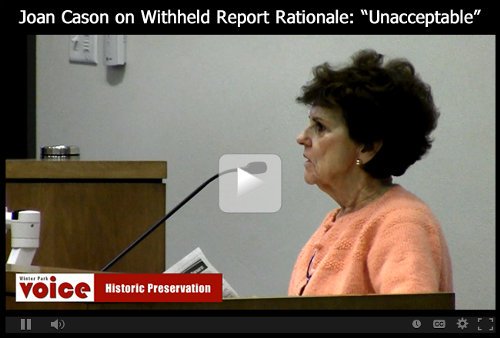
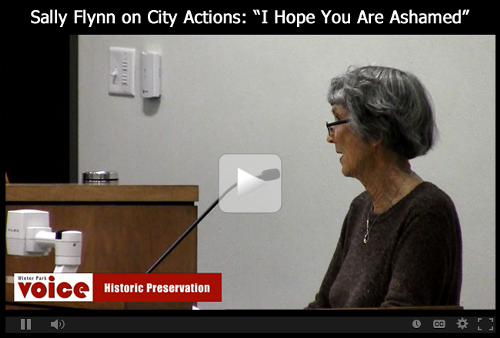
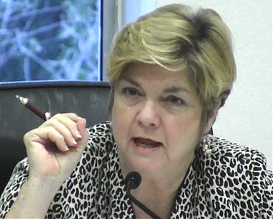 Ms. Cooper responded to comments from Ms. Cason and Ms. Flynn saying “I actually am embarrassed for the Commission and for the City . . . I believe we should give Mr. Bland an opportunity to present his report to the Commission.” ” Cooper said she anticipated that the consultant’s report “. . . would receive a public vetting at least equal to the vetting that was given to the Economic Development Board with Silvia Vargas. I didn’t know we had made that decision as a Commission not to hear it . . .”
Ms. Cooper responded to comments from Ms. Cason and Ms. Flynn saying “I actually am embarrassed for the Commission and for the City . . . I believe we should give Mr. Bland an opportunity to present his report to the Commission.” ” Cooper said she anticipated that the consultant’s report “. . . would receive a public vetting at least equal to the vetting that was given to the Economic Development Board with Silvia Vargas. I didn’t know we had made that decision as a Commission not to hear it . . .”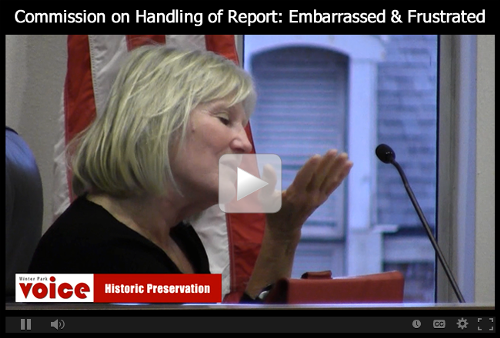
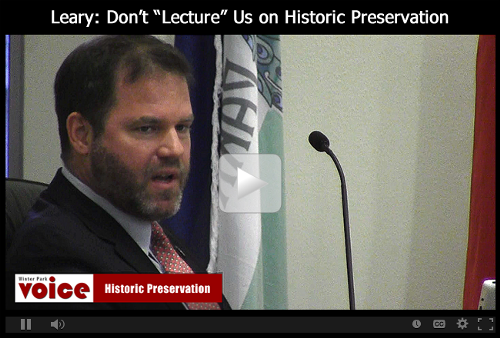
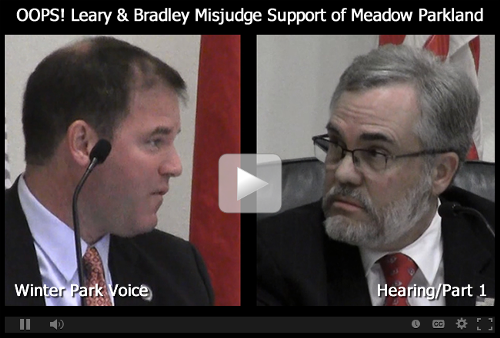
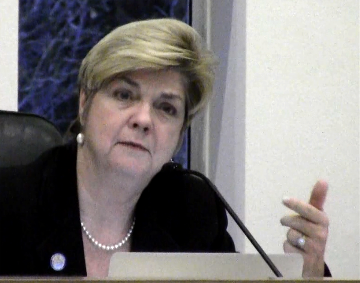 Commissioner Cooper noted that the intensity of public opposition to the City’s plan may have been due to the Commission’s failure to use a Commission hearing to publicly discuss the plan (instead of the Sept. 6 Strategic Planning Workshop where the plan was last discussed – a workshop that was attended by few city residents). (19:30 / Video, Part 1).
Commissioner Cooper noted that the intensity of public opposition to the City’s plan may have been due to the Commission’s failure to use a Commission hearing to publicly discuss the plan (instead of the Sept. 6 Strategic Planning Workshop where the plan was last discussed – a workshop that was attended by few city residents). (19:30 / Video, Part 1).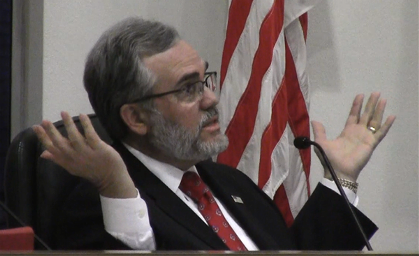 This last amendment – seeking to deny any parking on the meadow if the Commission failed to approve Bradley’s bid to pave parking spaces in the meadow – was based on Mr. Bradley’s assertion that since the City currently allows parking/use of the meadow for “6 months out of the year” it should be willing to permanently pave the meadow. Sarah Sprinkel seconded the amendment as Bradley proclaimed, “Put your money where your mouth is, folks – either it’s a parking lot or it’s a meadow.” (25:00 / Video, Part 1).
This last amendment – seeking to deny any parking on the meadow if the Commission failed to approve Bradley’s bid to pave parking spaces in the meadow – was based on Mr. Bradley’s assertion that since the City currently allows parking/use of the meadow for “6 months out of the year” it should be willing to permanently pave the meadow. Sarah Sprinkel seconded the amendment as Bradley proclaimed, “Put your money where your mouth is, folks – either it’s a parking lot or it’s a meadow.” (25:00 / Video, Part 1).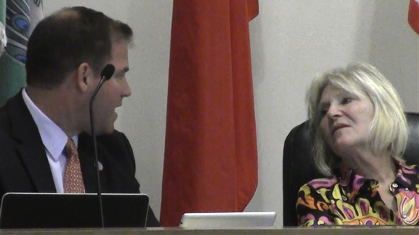 Mayor Bradley countered that 80 spaces taken away from the City’s parking supply when the West Meadow was converted from a parking lot to green space a few years ago, have never been “addressed” by the current or past Commissions. “I’m for parks as much as the next guy, but . . . the heart of our city requires convenient and accessible parking.” (32:45 / Video, Part 1).
Mayor Bradley countered that 80 spaces taken away from the City’s parking supply when the West Meadow was converted from a parking lot to green space a few years ago, have never been “addressed” by the current or past Commissions. “I’m for parks as much as the next guy, but . . . the heart of our city requires convenient and accessible parking.” (32:45 / Video, Part 1).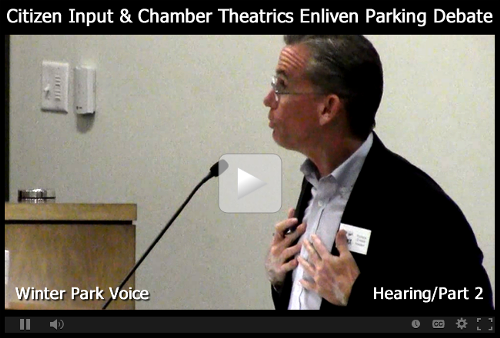
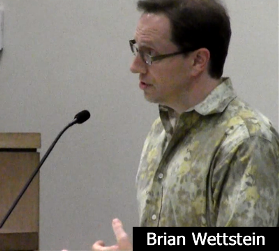 Brian Wettstein, co-owner of the Doggie Door on Park Avenue, was the evening’s first commenter. Mr. Wettstein responded to Commissioner Cooper’s assertion that merchant employees should park farther from the Avenue by claiming that merchants don’t have the legal right to keep employees from parking in nearby, publicly-available parking spaces (00:30 / Video, Part 2).
Brian Wettstein, co-owner of the Doggie Door on Park Avenue, was the evening’s first commenter. Mr. Wettstein responded to Commissioner Cooper’s assertion that merchant employees should park farther from the Avenue by claiming that merchants don’t have the legal right to keep employees from parking in nearby, publicly-available parking spaces (00:30 / Video, Part 2).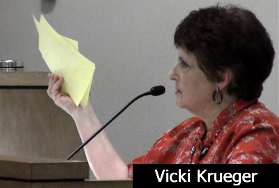 When Ms. Krueger’s 3 minutes of speaking time expired, she and the Mayor disagreed over whether Ms. Krueger should be allowed to speak longer. Ms. Krueger asked for more time after showing a handful of yellow “Speaking Requests” given to her by other citizens who had granted their time to Krueger. The Mayor agreed to give her an additional 15 minutes, but only if no one else in the chamber would speak in opposition to meadow parking. Ms. Krueger declined the Mayor’s offer and spoke for an additional minute during which she began a presentation of her own parking study that showed numerous empty parking spaces available during peak times of the day. (02:40 / Video, Part 2).
When Ms. Krueger’s 3 minutes of speaking time expired, she and the Mayor disagreed over whether Ms. Krueger should be allowed to speak longer. Ms. Krueger asked for more time after showing a handful of yellow “Speaking Requests” given to her by other citizens who had granted their time to Krueger. The Mayor agreed to give her an additional 15 minutes, but only if no one else in the chamber would speak in opposition to meadow parking. Ms. Krueger declined the Mayor’s offer and spoke for an additional minute during which she began a presentation of her own parking study that showed numerous empty parking spaces available during peak times of the day. (02:40 / Video, Part 2).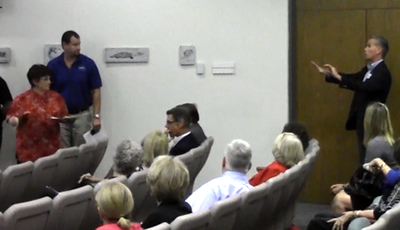 As Ms. Krueger left the podium, others in the audience challenged the Mayor’s limitation of her speaking time. The challenge to the Mayor was answered by Chamber President, Patrick Chapin who sprang to his feet and rushed out the chamber door dramatically proclaiming that he would return with “twenty or thirty” signed speaking forms that would enable him to request additional speaking time, too. (8:00 / Video, Part 2).
As Ms. Krueger left the podium, others in the audience challenged the Mayor’s limitation of her speaking time. The challenge to the Mayor was answered by Chamber President, Patrick Chapin who sprang to his feet and rushed out the chamber door dramatically proclaiming that he would return with “twenty or thirty” signed speaking forms that would enable him to request additional speaking time, too. (8:00 / Video, Part 2).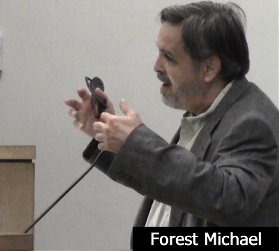 Forest Michael, an urban planner who participated in planning the West Meadow green space, spoke to the Commission and rebutted the view of Mr. Chapin and others who believe that turning the meadow to parkland resulted in the “loss” of downtown parking spaces.
Forest Michael, an urban planner who participated in planning the West Meadow green space, spoke to the Commission and rebutted the view of Mr. Chapin and others who believe that turning the meadow to parkland resulted in the “loss” of downtown parking spaces.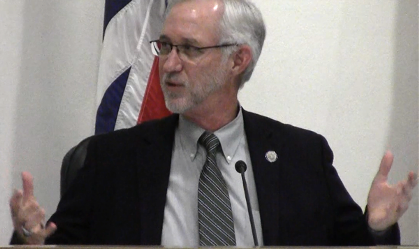 Ultimately, the Commission was unwilling to entertain any options beyond the originally discussed alternatives on New York Ave., Morse Ave., Public Works parking and the West Meadow. Commissioner McMacken summed it up by pointing out that entertaining so many ideas in a manner that was not “systematic” is “how [ we ] wind up in the mess we’re in . . .” McMacken asked the Commission to vote only on the original motion and amendments and to bring back the other alternatives for discussion and possible vote at a future hearing. (44:15 / Video, Part 2).
Ultimately, the Commission was unwilling to entertain any options beyond the originally discussed alternatives on New York Ave., Morse Ave., Public Works parking and the West Meadow. Commissioner McMacken summed it up by pointing out that entertaining so many ideas in a manner that was not “systematic” is “how [ we ] wind up in the mess we’re in . . .” McMacken asked the Commission to vote only on the original motion and amendments and to bring back the other alternatives for discussion and possible vote at a future hearing. (44:15 / Video, Part 2).
Recent Comments